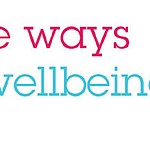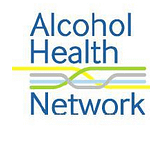This content is part of the Vision for the Public Sector Zone and the Wellbeing Zone
The Northern Ireland Civil Service (NICS) employs 26,000 people and is one of the largest employers in Northern Ireland. There are thirteen government departments with staff working in a wide range of areas across the many different aspects of government that touch on everyone’s day to day lives, with many providing direct services to the public such as: jobs, benefits and pensions; staffing prisons; driving licences and taxing vehicles; services to industry and agriculture; and maintaining roads.
NICS WELL is the corporate health and wellbeing programme for the 26,000 employees of the Northern Ireland Civil Service. It is supported by an organisational Charter for Health and Wellbeing, a WELL Strategy, a WELL support Team, network Volunteer WELL Champions, WELL Roadshows and an interactive and innovative WELL website.
The aim of NICS WELL is to deliver a corporate health, wellbeing and engagement programme that builds on existing good practice and provides coherence to this with all departments and their staff involved. It is a multi-level strategy for positive organisational and individual healthy behaviour change and also builds a health promoting community within the workforce supported by a network of Volunteer Champions and a core health promotion team. The programme, through the support team and Volunteer Champions, delivers key messages; organises health interventions and activities; and, the various components are linked together through an innovative and interactive WELL website.
The WELL programme raises awareness amongst staff about common health conditions such as obesity, diabetes, heart disease, cancer, mental ill health and stress. These have the potential to have an adverse impact on individuals, their families, performance at work and sickness absence. Advice is offered on how to improve health by undertaking positive health behaviour change with interventions provided which encourage healthy eating, weight loss, quitting smoking, increased physical activity, cancer screening and building resilience.
Employee engagement and commitment is also addressed by supporting and empowering all employees to get involved and take an active interest in improving their health, wellbeing and motivation. This will help create a more productive, attractive and corporately responsible place to work. The programme plays an important part in empowering employees to make informed choices. We recognise the importance that employee wellbeing makes in creating and maintaining a motivated, engaged and productive workforce. In developing a wellbeing community within the NICS it is also the intention that this will benefit not just the organisation and the quality of life of our workforce but also their families and the wider public health of the population of Northern Ireland.
One of the associated WELL interventions – Lifestyle and Physical Activity Assessment (LPAA)1,2 – had 717 participants during 2012/13. LPAA assesses a range of healthy lifestyle behaviours including diet, weight, alcohol intake, smoking and physical activity. On completion of the assessment participants who need to make a change are followed up at six months to monitor their health behaviour change. In the 2012/13 group: 107 out of 149 (72%) were eating more healthily; 85 out of 124 (69%) were taking more physical exercise; 77 out of 121 (64%) had lost weight; 28 out of 40 (70%) had reduced their alcohol consumption; and, 4 out of 21 smokers had made and successfully maintained a quitting attempt. For those 4 ex-smokers it can be estimated that quitting added 1.2 years (known as Discounted Life Years) to each of their lives – in total therefore 4.8 years of life saved. Research has also shown that smoking cessation is directly linked to productivity gain at work3.
Since its launch in September 2012 and in addition to the LPAA, the WELL programme has:
- Recruited and trained over 170 Volunteer WELL Champions across the organisation and from a range of different grades;
- Obtained external accreditation for Volunteer WELL Champion training from Skills Active and Volunteer Now;
- Delivered over 80 health and wellbeing events across the NICS;
- Engaged with over 5,000 staff at wellbeing events and road-shows with around 3,000 indicating they would make a positive healthy lifestyle change;
- Had over 30,000 staff interactions with the WELL website and 16,360 individual staff have engaged with the website – representing almost two thirds of the entire workforce;
- Has sent out ten WELL health and wellbeing e-zines – each edition representing a potential interaction with over 20,000 staff.
- In a recent staff survey (2013): there was, compared to a similar survey in 2011, a 2% increase in both the Employee Engagement Index and the WHO5 Wellbeing Index.
References
1. Addley, K., McQuillan, P., Ruddle, M. Creating healthy workplaces in Northern Ireland: Evaluation of a lifestyle and physical activity assessment programme. Occup. Med., Oct 2001; 51: 439 – 449.
2. Addley, K., Boyd S., Kerr, R., Houdmont, J., McQuillan, P, McCrory, M. The impact of two workplace-based health risk appraisal intervention on healthy lifestyle parameters, mental health and workability. Health Education Research 2014; doi:10.1093/her/cyt.
3. Workplace interventions to promote smoking cessation. National Institute for Health and Clinical Excellence (NICE) PH5 April 2007.
March 2014




